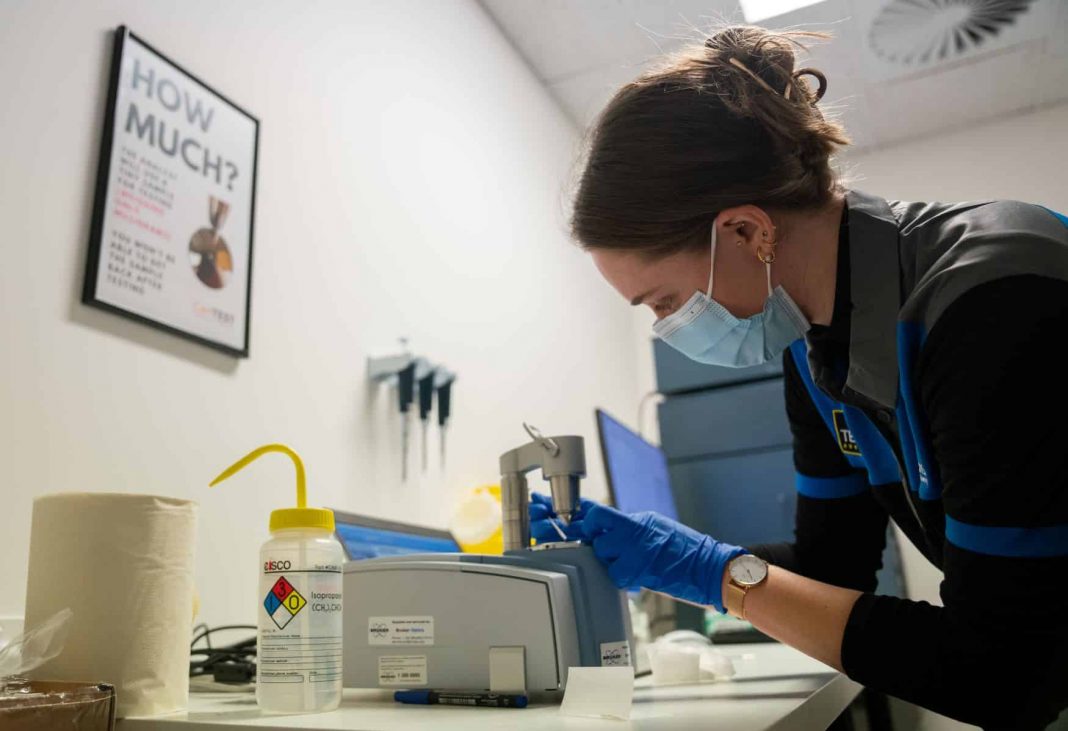The ACT Government has extended Australia’s first fixed-site health and drug checking service, CanTEST, until August – as the interim independent evaluation of the pilot Service, released today, recommended.
Stephanie Stephens, acting CEO of Directions Health, commended the ACT Government on continuing the CanTEST pilot.
“Throughout the pilot, we have supported people who intend to use drugs to have access to information that could save their life, leading to better informed choices and reducing the risk of overdose,” she said.
“The Canberra community has given great support to CanTEST, recognising the value of a health response to drug use. We’re proud to continue delivering an Australia-first harm minimisation service for Canberrans.”
Directions Health operates CanTEST in partnership with the Canberra Alliance for Harm Minimisation and Advocacy (CAHMA) and Pill Testing Australia.
- Saving lives: Australia’s first drug-testing clinic opens in Canberra (19 July 2022)
- ACT pill testing service leads to some drugs being discarded (25 August 2022)
- Pill-testing clinic reports success after one month (25 August 2022)
- ‘Canberra ketamine’: ANU scientists discover new recreational drug (19 October 2022)
CanTEST opened in Civic in July, initially as a six-month pilot.
Chemical analysts identify the two main ingredients of drugs and pills given to them, whether they have any unwanted effects, and whether there are any unexpected, potentially dangerous substances, such as fentanyl, an opioid added to heroin and cocaine that has caused several fatal overdoses overseas.
Since opening its doors, a range of drugs have been brought into the service for testing, including MDMA (ecstasy), heroin, methamphetamine, cocaine, ketamine, and psychedelics. In October, analysts there even detected a new recreational drug unknown to science.
“Without CanTEST, we would not have identified dangerous and unexpected drugs circulating in Canberra or had the opportunity to have a non-judgemental, practical, and evidence-based discussion about drugs, their contents, and potency with the people planning to use them,” Ms Stephens said.
Health minister Rachel Stephen-Smith said the information allowed health services and the wider community to learn about and respond to dangerous substances earlier.
Qualified alcohol and other drug workers, peer educators from CAHMA, and nurses provide advice about harms associated with drug use and how they can reduce that harm. The clinic also offers drop-in nurse consultations about general, sexual, and mental health advice.
Ms Stephen-Smith said the community had supported the service since it opened.
“The ACT continues to lead the nation with our evidence-based approach in treating drug use as a health issue, rather than a criminal justice issue,” Ms Stephen-Smith said.
“Those using CanTEST have reported positive experiences of having their drugs tested without fear of judgement.”
The ANU is independently evaluating the service, in partnership with researchers from other universities. The final evaluation is expected to be delivered in the first half of this year.
The interim independent evaluation report released today recommends the pilot be completed and the service continue pending the full evaluation. The report details the impact the service has had over the first three months of operation, indicating strong user support and engagement with the alcohol and other drugs and health interventions.
The interim independent report found that 80 per cent of clients accepted an alcohol and other drugs or healthcare intervention, and 62 per cent reported never previously accessing a healthcare worker for information or advice about drug use.
In its first four months of operation, CanTEST tested 371 samples; clients voluntarily discarded around 15 per cent of samples afterwards.
The service also delivered 436 health and alcohol and drug interventions in its first four months; some clients received multiple interventions in one visit.
Ms Stephen-Smith said the ACT Government was committed to evidence-based harm minimisation, in line with the National Drug Strategy 2016-2026 and the ACT Drug Strategy Action Plan 2022-2026.
“The ACT Government does not support or condone illicit drug use, and our advice to the community will always be to not take drugs.
“However, we recognise that some people will use illicit drugs. Drug checking alongside expert advice and brief health interventions can reduce the harms associated with drug use, especially for people who may have limited drug-taking experience.”
CanTEST builds on pill testing at Groovin the Moo festivals in 2018 and 2019 and in Garema Place, Civic – the first government-approved pill testing service.
Gino Vumbaca OAM, President of Harm Reduction Australia & Pill Testing Australia, said: “Just as we saw with the previous festival-based pill testing trials, the public health benefits of the fixed site have also been proven.
“We thank and commend the leadership of the ACT Government for protecting its community, and remind governments across the nation [that] Pill Testing Australia offers a free trial of pill testing at a festival of their choice. This was an offer taken up by the ACT Government in 2018, and led to the now very successful trial of a fixed site service.
“The lack of pill testing services outside Canberra is an ongoing tragedy for far too many people and families, and begs the question of how much more evidence is required for these services to be established.”
Located on the ground floor of the City Community Health Centre at 1 Moore Street Civic, the free and confidential service is open every Thursday from 10am – 1pm and Friday from 6pm – 9pm.



